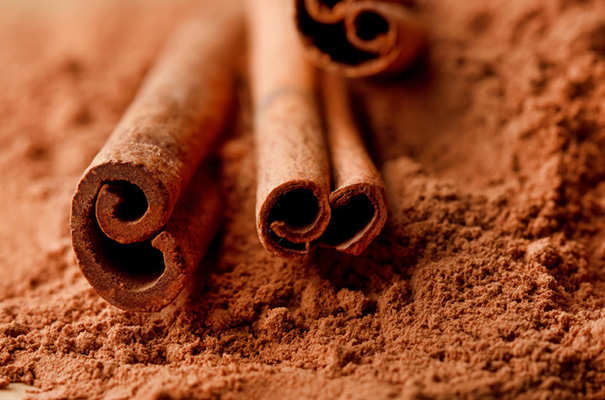Does the idea of Cinnamon conjure images of sweet treats, Pumpkin pies, and seasonal flavors? The fact is, the warming spice has been used medicinally in ancient Egyptian, Greek, and Roman cultures and was even recorded in a Chinese medical text circa 2700 B.C.E.
The inner bark of the evergreen Cinnamon tree was a valuable commodity. Legend has it that the aromatic bark was one of the spices often displayed in the extravagant processions of the ancient Pharaohs! Indeed, the royal spice continues to be valuable in cultures around the world today.
What Can Cinnamon Do For You
Cinnamon is classified primarily as a carminative, an herb that helps to prevent and relieve intestinal gas. What else can it do for you? The warming super spice:
- Promotes digestive harmony
- Relieves gas and abdominal cramps
- Soothes upset stomach
- Quells nausea
- Soothes gastrointestinal distress
- Boosts circulatory health
- Promotes mental alertness
- Supports healthy blood sugar
- Provides antioxidant support
- Relieves menstrual cramps
Cinnamon is not recommended for use if pregnant or nursing. Consult a healthcare practitioner before use if taking medication, or have a medical condition.
How to Use Cinnamon
There are just as many ways to incorporate this sweet spice into your daily diet:
- Sprinkle in coffee and lattes
- Add to oatmeal and other hot cereals
- Add a pinch in your smoothies
- Include in medicinal tea blends to improve the taste
- Blend in homemade curries
- If making an herbal blend for encapsulation, you can substitute Cinnamon for Cayenne to maximize its effectiveness.
Cinnamon Tea Directions
Powder:
To prepare as an “instant tea,” pour 1 cup of boiling water over ¼ to ½ teaspoonful of powder.

Cut:
Add 1 teaspoon of cut Cinnamon to a cup of cold water; bring to a boil and then simmer for 10 minutes. Strain and enjoy.
Whole Sticks:
Place 1 stick in 10 oz of cold water and bring to a slow boil, then simmer for at least 15 minutes. Strain.
Nature’s Wonderland Cinnamon Spiced Tea
Cinnamon can be blended with other carminatives such as Anise, Ginger, and Fennel to make a soothing after-dinner spiced tea. Try this delightful tea blend to harness the soothing power of cinnamon:
1 tbsp Cinnamon (cut form)
1 tbsp Anise (cut form)
1 tbsp Ginger (cut form)
1 tbsp Fennel (cut form)
1 tsp Honey or Sweetener of Your Choice (optional)
Directions:
In a bowl, combine a tablespoon of each herb and then add 1 teaspoon of the blend to a cup of boiling water. Steep for 4-7 minutes or to your desired strength. Strain and add a little bit of honey or your preferred sweetener. Enjoy.
No doubt about it, Cinnamon is one sweet remedy to spice up your health.



There are two kinds of cinnamon; cassia and Ceylon. Both are fine with limited consumption, but if you are putting it in your coffee, as I do every day, and as you suggest doing, then you better be using Ceylon! Cassia contains coumarin, and can be toxic with just 1 to 2 tsp consumption per day.
I am not an authority, but check it out for yourself. Do your research.
Thanks for your observations. And yes, while they both contain coumarin, Ceylon Cinnamon contains less. Current research is still ongoing as far as the standard dosage for both kinds, so as we always recommend checking with your healthcare practitioner or an herbalist (find one here https://www.americanherbalistsguild.com/member-profiles). We also love the American Botanical Council and their magazine HerbalGram for up-to-date info on herbs.